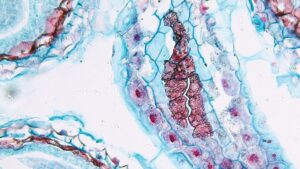Advances in synthetic biology for bacterial, yeast and animal systems have made great progress in the journey to understand and manipulate genetic and metabolic networks. Yet, discoveries in the plant field have lagged.
Researchers from The University of Western Australia are working to change that by building synthetic gene circuits that, “control and customize where, when, and under what environmental conditions a gene is turned on or off in a plant,” shared a release from the university.
Synthetic gene circuits could be employed to engineer plants with increased resistance to adverse environmental conditions and pathogens, enhance growth and nutritional characteristics and create new products on demand, believes James Lloyd, an author of the study.
“Synthetic gene circuits are similar to electronic circuits, but they’re built from biological parts such as DNA and proteins, and they operate within an organism,” said Lloyd. “Like any organism, plants naturally grow and function based on their own complex in-built programs. With synthetic gene circuits we can now write our own custom programs to precisely tailor plant function.”
The new gene circuit system could program plants to turn specific genes on and off when desired conditions are identified through internal, environmental or artificial cues, shared Ryan Lister, professor at UWA’s ARC Centre of Excellence in Plant Energy Biology and head of the Genome Biology and Genetics program at the Harry Perkins Institute.
“Our research demonstrates how we could now program synthetic gene circuits that function in plants,” said Lister. “This new gene circuit toolkit will enable plant traits to be controlled with much greater precision and customizability than was previously possible.”
The enhanced level of sophistication in commanding when and where gene and cellular processes are turned on in plants could allow plant biotechnologists to establish “a new generation of ‘smart plants'” with greater capabilities that activate only when needed, believes Lloyd.
“These circuits give us new abilities to program in the language of the cell, enabling development of novel plant capabilities that aren’t possible by conventional breeding or genetic engineering approaches,” added Lister. “We hope this customizability will enable development of improved crops, and tailoring of plants to new environments, such as the burgeoning indoor vertical farming industry, or further away as we venture beyond Earth.”
Read More:
The Wonders of DNA and Genetic Engineering
New Canola Genes Identified for Higher Yields
Mutant Genetic Occurrence Could be the Key to Pesticide-Free Insect Management













